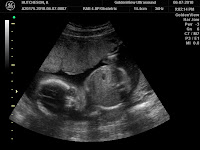 What would you do if you knew you had millions of dollars in inheritance awaiting you?Inheritance is
What would you do if you knew you had millions of dollars in inheritance awaiting you?Inheritance is a prime way many people in our culture today bank on receiving extra money at some point in their life. There are cases when some children long look forward to the death of their parents so that they can inherit their money. These folks we usually see on a funny television show or scene in a movie. Sometimes it is an old friend who may leave something behind for another. At best and at most, those who are receiving some sort of inheritance usually care more about their loved one who is leaving them their inheritance, but in the back of their mind, they know that when they croak, there’s something coming their way which may help out paying for that forty or fiftieth wedding anniversary cruise!
To help safeguard against wasting time dwelling on one of the many earthly things such as supposedly guaranteed money, and to instead focus much more on heavenly things, may we now learn of a much greater inheritance.
Paul makes an interesting statement in Ephesians 1:18 that you may know what is the hope of his [God the Father] calling, what is the wealth of his glorious inheritance in the saints.
One of Paul’s many metaphors which he uses is this word “inheritance.” In this lone yet wreaked with depth verse, Paul says that part of his multifaceted desire is for Christians to know what is the wealth of God’s inheritance in the saints. Usually, when we think about God, we think often about what he can do or has done for us, about our inheritance in heaven. However, this verse is claiming something the other way – what we do and are for him.
The use of the word “wealth” [πλοῦτος] can also be “riches” or “abundance” and is used usually to describe someone’s accumulation or quality of material possessions. It was the same for people back then as it is today. In this verse, it is used as an adjective describing God's inheritance. Because it is used of God and is a word which the culture then would have understood, it is drawing a contrast between earthly wealth and heavenly wealth. Because it is dealing with God who is infinite, it follows that this wealth is not merely more abundant than earthly wealth, but also lasting.
People then, as today lived in a consumer like environment and money held its sway in things. So, when Paul used this word, the readers of this epistle were overly familiar with it. Paul was being relevant with the culture. And, surely, anyone in the church at Ephesus who may had been a business person perked up and listened more attentively as Paul was using an economic term. However, Paul was talking about a heavenly economy, about heavenly wealth which he made clear was worth far more than earthly wealth.
But what is this wealth in connection with? It is connected with “inheritance” [κληρονομίας]. This word appeared in 1:14, but there it refers to our home in heaven. Here in 1:18, it refers to God’s inheritance.
Wait a second, God who already owns everything has an inheritance? Yes, God does have an inheritance and his inheritance is us - his children.
Much of understanding this verse hangs and falls on how one understands the little word “in.” In several Bible translations - the New English Bible, the Holman Standard Bible, and even the New Revised Standard Version Bible - this verse does not have “in” there, rather the word “among.” This is a tragic translation! This would imply that we as believers have an inheritance waiting us in heaven. Trust me, there will be know homes we inherit or investments which become ours in heaven.
Our inheritance is God and he alone satisfies all.So, 1:18 is saying that God has an inheritance and we, his children are that inheritance.
As a result of God’s choosing, redeeming, adopting, and sealing of us (vv. 3-5, 13-14) – we are his possessions. As his possessions, he will fully inherit us when we pass on to heaven and are welcomed into his presence. Therefore, it follows, we have an inheritance - God - AND - God has an inheritance - us.
Now for the parallel to today: If you knew you had millions of dollars awaiting you in inheritance money, whether through property, CDs, stock or bonds, or just cold cash, would'nt you familiarize yourself with it and know exactly what was there awaiting you, even think about it often, and know thoroughly well the details? Of course. How much more should we pay attention to, think about, and thoroughly know the details of our heavenly inheritance which we have – the King of glory himself.
We are valuable to God, this is not merely seen in that he purchased our redemption, but also that he longs for us to come home to him calling us his inheritance. We have a wonderful inheritance we can hope in and look forward to.
This makes evident and emphatic that the pursuit of the things of this world such as wealth
above the pursuit of God leads to a hopeless end. Whereas the pursuit of the richest inheritance ever, the pursuit of our heavenly inheritance leads to an endless hope. Wealth is not bad, nor attempting to increase one’s wealth. It is only when heavenly wealth through our inheritance of God begins to dim in its splendor compared to earthly items does it then become evil.







